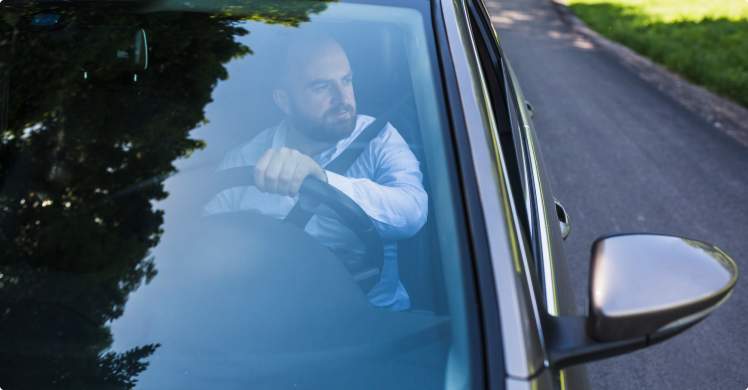Drowsy Driving
Drowsy driving is driving while tired, which can lead to accidents.
Do you know how much sleep impacts your driving? The answer that most of us will come up with is “ooh not much! I have always had sleep issues and my driving is just fine!” or maybe you have just been lucky, very luck up till now! And here’s why!
Research by the AAA Foundation for Traffic Safety highlights that missing just 2 hours of sleep doubles the risk of a crash, while losing 3-4 hours increases it by a staggering 400%.

The AAA Foundation for Traffic Safety estimates that 21 percent of fatal motor vehicle crashes involve driver fatigue. A study sponsored by the AAA Foundation for Traffic Safety found that 17.6% of all fatal crashes involved a drowsy driver from 2017–2021.

What is Drowsy Driving?
Operating a vehicle while sleepy, known as drowsy driving, poses a significant threat to road safety, affecting anyone behind the wheel. This hazardous behavior substantially increases the risk of accidents, resulting in an alarming number of injuries and fatalities annually.
Drowsy Driving: A High-Risk Behavior
Drowsy driving substantially increases the risk of car accidents, particularly when drivers experience microsleeps – brief periods of sleep lasting only a few seconds. These episodes can cause drivers to lose control, veer off the road, or collide with other vehicles, especially at high speeds. Inadequate sleep not only affects reaction times and attention but also impairs decision-making, leading to reckless behavior behind the wheel. The risks associated with drowsy driving are alarming, emphasizing the need for drivers to prioritize sleep and safety.
Preventing Drowsy Driving: Essential Tips
- Pull Over and Nap: If you're feeling drowsy, pull into a well-lit area and take a 20-minute nap to recharge.
- Take Regular Breaks: Make stops every 100 miles or 2 hours, or switch drivers to stay alert.
- Avoid High-Risk Times: Drowsy driving peaks between 1-4 pm and 2-6 am. Try to avoid driving during these times if possible.
- Caffeine: A Temporary Fix: While caffeine can provide a temporary energy boost, it takes 30 minutes to kick in and can wear off quickly.
- Steer Clear of Drowsy Medications: Certain prescriptions and over-the-counter medications can cause drowsiness. Be aware of these risks and avoid driving if necessary.
- Avoid Alcohol: Alcohol can exacerbate drowsiness, so it's essential to avoid it altogether when driving.
- Debunking Common Myths: Don't rely on opening windows, turning up the radio, or adjusting the air conditioning to stay awake. These methods are ineffective and won't prevent drowsy driving.
